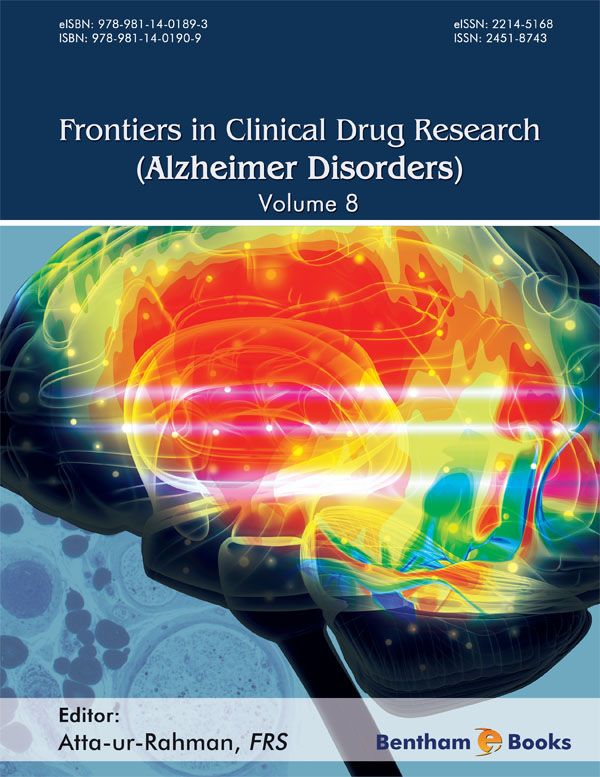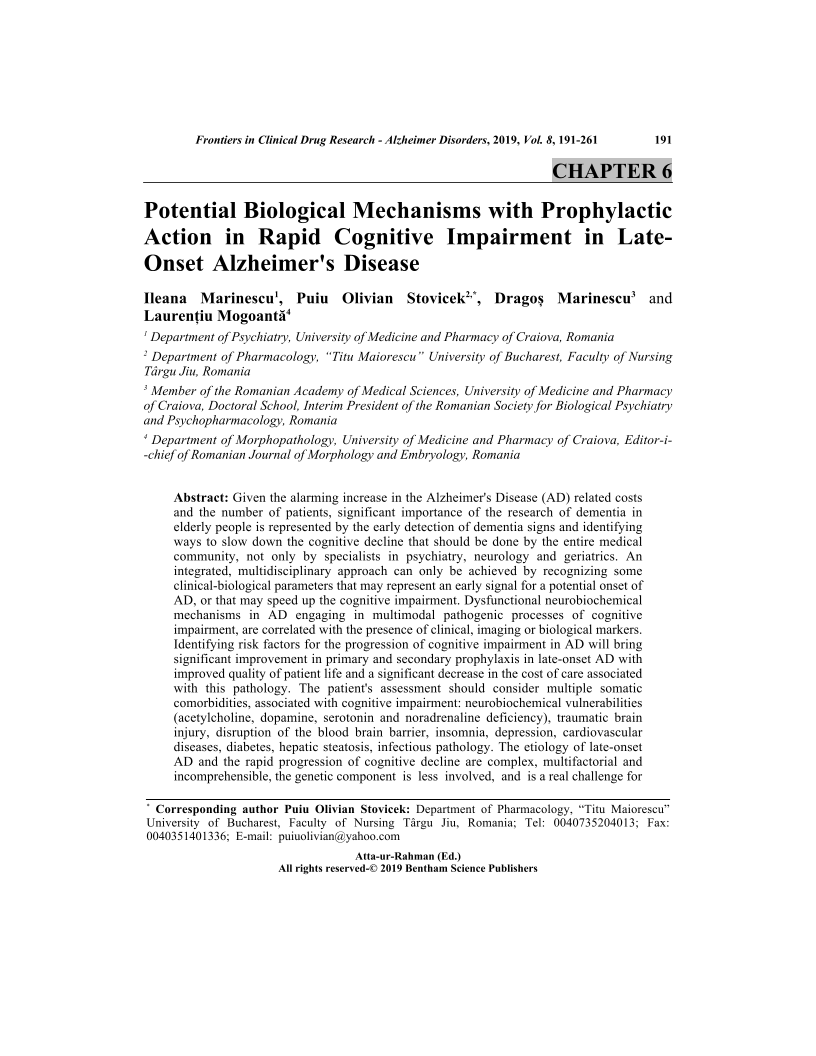Potential Biological Mechanisms with Prophylactic Action in Rapid Cognitive Impairment in Late- Onset Alzheimer's Disease

- Authors: Ileana Marinescu, Puiu Olivian Stovicek2, Dragos Marinescu3, Laurentiu Mogoanta4
-
View Affiliations Hide Affiliations2 Department of Pharmacology, "Titu Maiorescu" University of Bucharest, Faculty of Nursing Targu Jiu, Romania. 3 Department of Pharmacology, "Titu Maiorescu" University of Bucharest, Faculty of Nursing Targu Jiu, Romania. 4 Department of Pharmacology, "Titu Maiorescu" University of Bucharest, Faculty of Nursing Targu Jiu, Romania.
- Source: Frontiers in Clinical Drug Research - Alzheimer Disorders: Volume 8 , pp 191-261
- Publication Date: February 2019
- Language: English
Potential Biological Mechanisms with Prophylactic Action in Rapid Cognitive Impairment in Late- Onset Alzheimer's Disease, Page 1 of 1
< Previous page | Next page > /docserver/preview/fulltext/9789811401893/chapter-6-1.gif
Given the alarming increase in the Alzheimer's Disease (AD) related costs and the number of patients, significant importance of the research of dementia in elderly people is represented by the early detection of dementia signs and identifying ways to slow down the cognitive decline that should be done by the entire medical community, not only by specialists in psychiatry, neurology and geriatrics. An integrated, multidisciplinary approach can only be achieved by recognizing some clinical-biological parameters that may represent an early signal for a potential onset of AD, or that may speed up the cognitive impairment. Dysfunctional neurobiochemical mechanisms in AD engaging in multimodal pathogenic processes of cognitive impairment, are correlated with the presence of clinical, imaging or biological markers. Identifying risk factors for the progression of cognitive impairment in AD will bring significant improvement in primary and secondary prophylaxis in late-onset AD with improved quality of patient life and a significant decrease in the cost of care associated with this pathology. The patient's assessment should consider multiple somatic comorbidities, associated with cognitive impairment: neurobiochemical vulnerabilities (acetylcholine, dopamine, serotonin and noradrenaline deficiency), traumatic brain injury, disruption of the blood brain barrier, insomnia, depression, cardiovascular diseases, diabetes, hepatic steatosis, infectious pathology. The etiology of late-onset AD and the rapid progression of cognitive decline are complex, multifactorial and incomprehensible, the genetic component is less involved, and is a real challenge for research on the pathology of cognitive impairment. These considerations make it difficult to diagnose early and develop effective therapeutic strategies.
-
From This Site
/content/books/9789811401893.chapter-6dcterms_subject,pub_keyword-contentType:Journal -contentType:Figure -contentType:Table -contentType:SupplementaryData105

